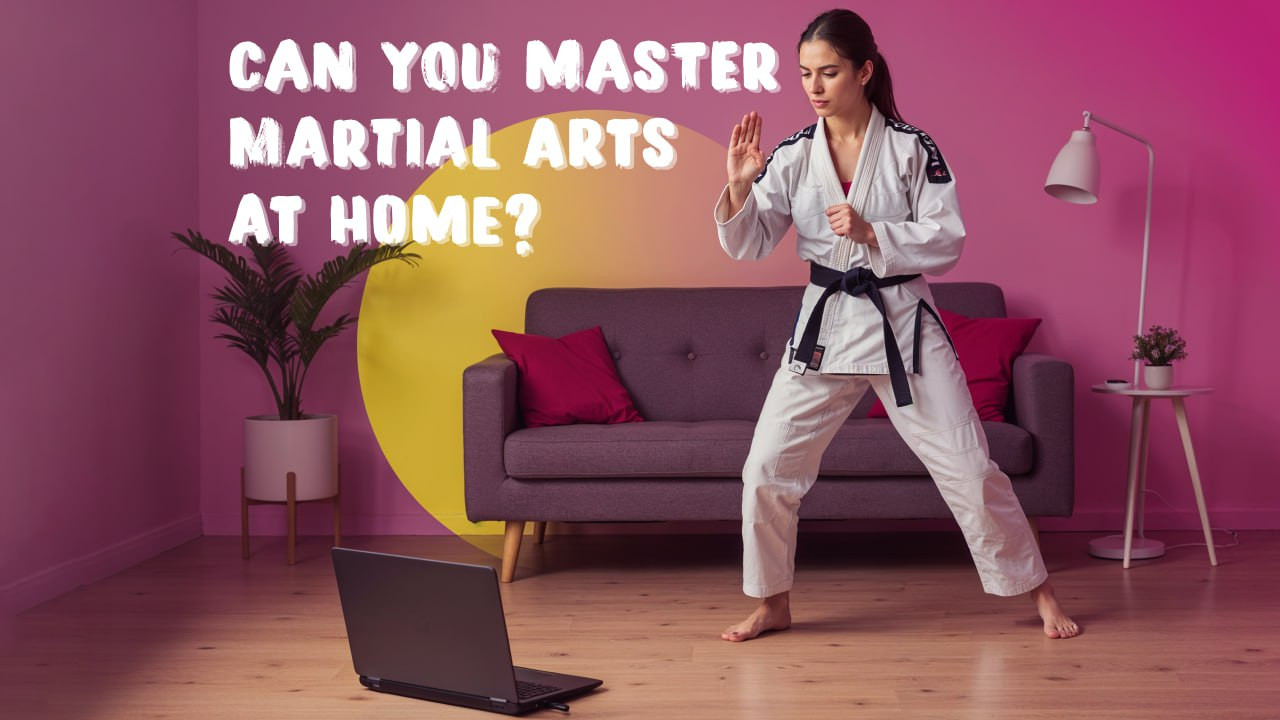Can You Master Martial Arts at Home?

Learning a martial art is a serious commitment. It takes a lot of effort, dedication, and discipline, but most of all it takes a lot of time. Even for people who never hope to get to the professional level and just want to learn to defend themselves, they have to spend years learning and refining technique, conditioning, and studying.
Yes, studying.
As Coach Micah B. notes in the video below, every coach should be pushing students to work outside of the gym and hammering home that it is a necessary ingredient in any recipe for success. And while it is not the most glamorous part of learning martial arts, studying theory and learning from the greats by watching their fights should be a vital part of everyone’s training regimen. Micah’s story explains why.
Micah’s Story
Coach Micah B. has a background in Muay Thai, boxing, jiu-jitsu, and wrestling. He’s also helped teach self-defense classes for women. He has more than a decade of experience and he has trained with and coached more people than he can count.
However, his initial experience at his local MMA gym got off to more of a stumble than a sprint. He was not good. However, he pushed through the first few weeks of training, toughened up, and kept coming back for more. Eventually, his coaches thought that he was confident enough in his abilities to compete in an MMA-style event.
It did not go well.
As Micah explains, his opponent kept laying into him with low kicks and he didn’t have any idea how to defend against them. He even asked his corners if they had any idea how to stop it between rounds because his legs were getting hacked. They couldn’t help him.
Needless to say, he lost the fight.
Online Classes
After the loss, Micah decided to look online for help, and he discovered videos by Lawrence Kenshin. One video in particular, Low-Kick Finale, then led him to Duke Roufus University. Duke Roufus is a fighter who went to Thailand to study how to fight and eventually became a world champion in the 1990s. Micah enrolled in the program and immediately found a lesson plan that focused on defending against low kicks—something that Roufus had watched his brother (also a professional fighter) fail to defend against while on a major stage.
The curriculum combined theoretical knowledge with solo drills and drills that required a partner, but none of these drills necessitated a full gym. Micah could do the work by himself or with a buddy. He also could direct message instructors from the university to make sure he was actually understanding the point and getting better.
What he noticed was that he was not getting faster or bigger. Instead, his technique was improving at a rapid clip, and he started to outpace the development of fighters who joined the gym around the same time he did. He started to be able to hold his own for a few rounds against guys who normally beat him within a few minutes. Soon, he was forcing a draw. Not long after that, he started winning fights against these same guys. He then started winning against people who were increasingly better.
Micah recognized that learning from people who run online universities and programs was worthwhile because they helped him improve his technique and changed how he watched film. It also changed how he tried to imitate the greats. For example, he realized that as much as he wanted to be Mike Tyson, he had neither the speed nor the strength to do so effectively. He discovered that he could copy certain moves from Tyson or from Pacquiao or Mayweather, but that he was not designed to copy their total style.
“Do not be what you are not meant to be,” he advises. Instead, to quote Bruce Lee: “Absorb what is useful, discard what is not, and add uniquely what is your own.”
Homeschooling Can Only Get You So Far
Online lessons and at-home drilling improved Micah’s technique. There is no doubt about that. However, Micah was watching videos and doing these drills in addition to going to the gym and live sparring with a partner. This live resistance helped prepare him for real competitions. It taught him timing, fight dynamics, and how to respond under pressure. It also taught him how to keep his composure and focus while in the midst of a fight, which is not something that you can learn how to do through solo drilling or watching YouTube videos.
As Micah says, “You don’t need perfect technique. You need confidence, timing, and experience” because trash technique will beat perfect technique if perfect technique never spars.
As much as online training can be considered a supplement to help you improve, it can’t be your entire diet. You still need real food. You still need to understand real-world fight dynamics, and that means you need to put in your hours at the gym if you want to develop as a fighter.

